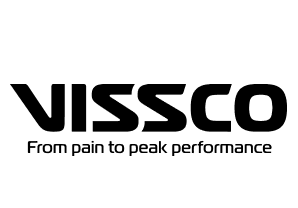Search Engine Optimization (SEO) is a crucial aspect of digital marketing that can significantly impact your website’s visibility and traffic. However, for beginners, navigating the complex world of SEO can be challenging, and it’s easy to make mistakes that can hinder your progress. In this blog post, we’ll explore 11 common SEO mistakes that beginners often make and provide guidance on how to avoid them.
1. Ignoring Keyword Research
One of the most fundamental mistakes beginners make is neglecting proper keyword research. Keywords are the foundation of SEO, as they help search engines understand what your content is about and match it with user queries.
How to avoid this mistake:
– Use keyword research tools like Google Keyword Planner, SEMrush, or Ahrefs
– Focus on long-tail keywords that are less competitive and more specific
– Analyze search intent behind keywords to create relevant content
Remember, effective keyword research helps you understand what your target audience is searching for, allowing you to create content that meets their needs.
2. Overusing Keywords (Keyword Stuffing)
While keywords are important, some beginners go overboard by stuffing their content with an excessive number of keywords, thinking it will improve their rankings.
How to avoid this mistake:
– Focus on creating natural, high-quality content that incorporates keywords organically
– Use keywords in important places like titles, headings, and meta descriptions, but don’t force them
– Prioritize readability and user experience over keyword density
Google’s algorithms are sophisticated enough to understand context, so concentrate on creating valuable content rather than obsessing over keyword frequency.
3. Neglecting On-Page SEO Elements
On-page SEO elements such as title tags, meta descriptions, header tags, and image alt text are crucial for helping search engines understand and rank your content.
How to avoid this mistake:
– Optimize title tags and meta descriptions for each page
– Use header tags (H1, H2, H3) to structure your content logically
– Add descriptive alt text to images
– Ensure your URLs are clean and include relevant keywords
Paying attention to these on-page elements can significantly improve your website’s SEO performance.
4. Ignoring Mobile Optimization
With mobile devices accounting for a large portion of web traffic, having a mobile-friendly website is no longer optional. Google uses mobile-first indexing, meaning it primarily uses the mobile version of your site for ranking and indexing.
How to avoid this mistake:
– Use responsive design to ensure your website looks good on all devices
– Test your site’s mobile-friendliness using Google’s Mobile-Friendly Test
– Optimize page load speed for mobile users
– Ensure buttons and links are easily clickable on smaller screens
A mobile-optimized website not only improves your SEO but also enhances user experience, leading to better engagement and conversion rates.
5. Neglecting Local SEO
For businesses with a physical presence or those serving specific geographic areas, local SEO is crucial. Many beginners overlook the importance of optimizing for local search.
How to avoid this mistake:
– Claim and optimize your Google My Business listing
– Ensure your NAP (Name, Address, Phone number) information is consistent across all online directories
– Encourage customer reviews on Google and other relevant platforms
– Create location-specific content and landing pages
Local SEO can significantly boost your visibility in local search results, driving more targeted traffic to your business.
6. Creating Low-Quality or Thin Content
Content is king in SEO, but many beginners make the mistake of producing low-quality or thin content in an attempt to rank quickly.
How to avoid this mistake:
– Focus on creating in-depth, valuable content that addresses user needs
– Aim for a minimum of 300 words per page, but prioritize quality over quantity
– Use research and data to back up your claims
– Include visuals, such as images and videos, to enhance your content
High-quality, comprehensive content not only ranks better but also encourages users to spend more time on your site and share your content.
7. Ignoring Link Building
While on-page SEO is crucial, off-page factors like backlinks play a significant role in determining your site’s authority and rankings. Many beginners focus solely on on-page optimization and neglect link building.
How to avoid this mistake:
– Create high-quality, shareable content that naturally attracts backlinks
– Reach out to relevant websites for guest posting opportunities
– Engage in industry forums and discussions, providing valuable insights and linking to your content when appropriate
– Monitor and disavow toxic backlinks that could harm your SEO
Remember, quality is more important than quantity when it comes to backlinks. Focus on obtaining links from reputable, relevant websites in your niche.
8. Neglecting Site Speed Optimization
Page load speed is a crucial ranking factor and directly impacts user experience. Slow-loading websites can lead to higher bounce rates and lower rankings.
How to avoid this mistake:
– Optimize image sizes and use appropriate formats
– Minimize HTTP requests by reducing the number of elements on your pages
– Enable browser caching
– Use a content delivery network (CDN) to improve load times for global visitors
Use tools like Google’s PageSpeed Insights to identify and address speed issues on your website.
9. Ignoring Analytics and Data
Many beginners set up their SEO strategy and then fail to monitor its performance or make data-driven decisions.
How to avoid this mistake:
– Set up Google Analytics and Google Search Console for your website
– Regularly review key metrics such as organic traffic, bounce rate, and conversion rate
– Use data to identify top-performing content and areas for improvement
– Adjust your strategy based on the insights you gain from analytics
By consistently analyzing your SEO performance, you can refine your strategy and achieve better results over time.
10. Expecting Immediate Results
SEO is a long-term strategy, but many beginners become discouraged when they don’t see immediate results.
How to avoid this mistake:
– Set realistic expectations and understand that SEO takes time
– Focus on creating a solid foundation with quality content and technical optimization
– Consistently work on improving your site and creating new content
– Monitor progress over months rather than days or weeks
Remember, sustainable SEO growth is more valuable than quick, short-term gains that may not last.
11. Not Staying Updated with SEO Trends and Algorithm Changes
The world of SEO is constantly evolving, with search engines regularly updating their algorithms. Beginners often make the mistake of not staying informed about these changes.
How to avoid this mistake:
– Follow reputable SEO blogs and news sources
– Attend webinars and conferences to learn about the latest trends
– Join SEO communities and forums to exchange knowledge with other professionals
– Regularly review and update your SEO strategy based on new best practices
Staying informed about SEO trends and algorithm updates helps you adapt your strategy and maintain your website’s performance in search rankings.
Conclusion
Avoiding these common SEO mistakes can significantly improve your website’s search engine performance and overall digital presence. Remember that SEO is an ongoing process that requires patience, consistent effort, and a willingness to learn and adapt. By focusing on creating valuable content, optimizing your website technically, and staying informed about SEO best practices, you can build a strong foundation for long-term success in search engine rankings. As you gain experience and see results from your efforts, you’ll be better equipped to navigate the complex world of SEO and achieve your online marketing goals.











